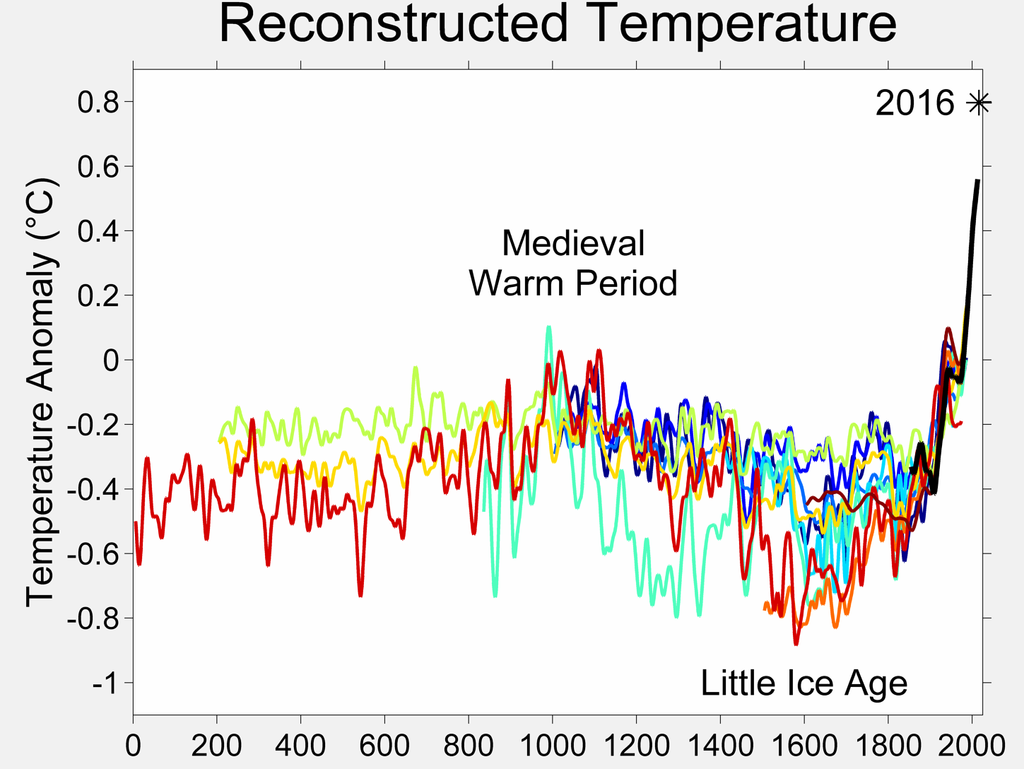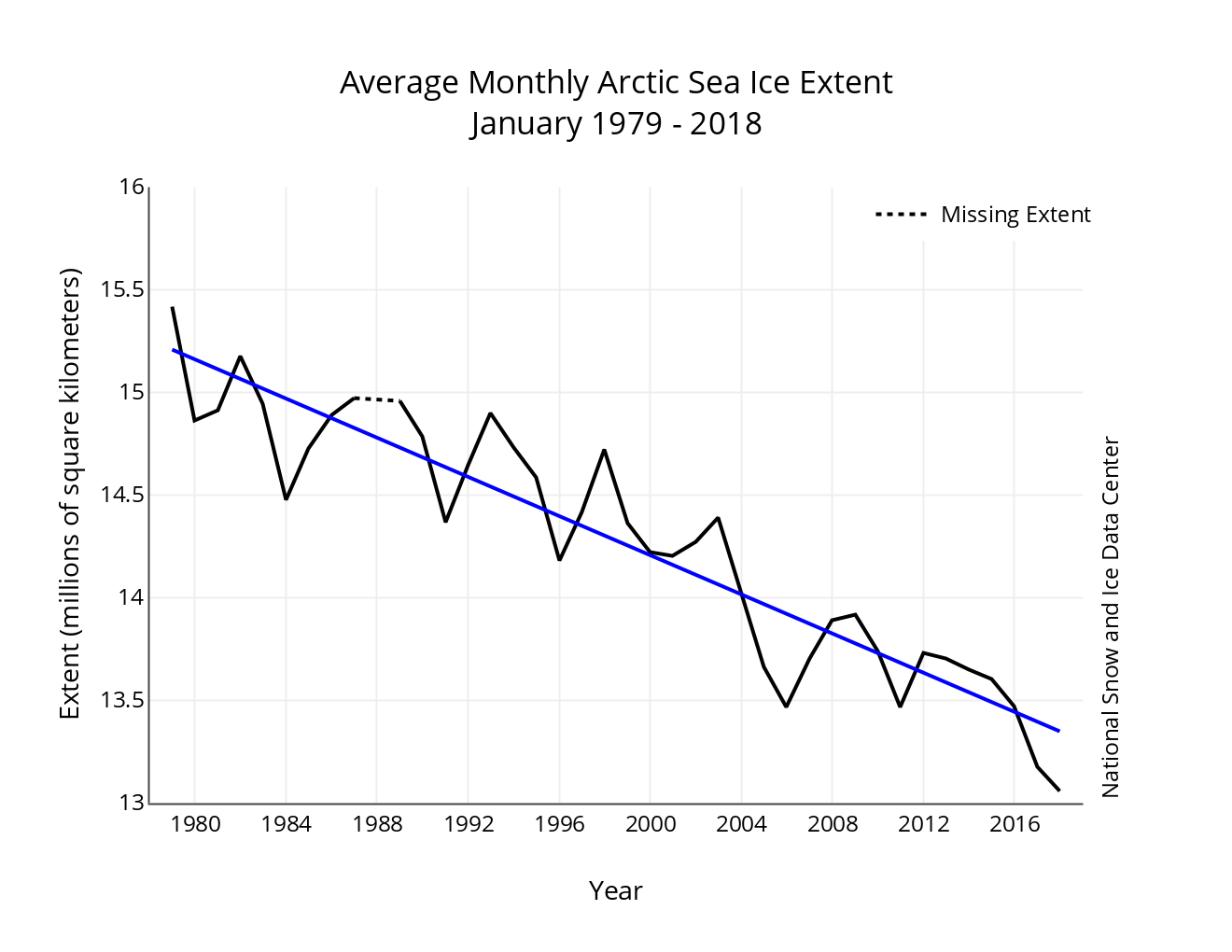Yep. It was around 180ppm when the Ice Age was at its coldest, then rose to 260, and stayed around 260 for thousands of years.
View attachment 67249823
You have to go back about 900,000 years to find CO2 levels of around 400ppm.
View attachment 67249831
Wanna guess when it started to rise? Guess. Go ahead, guess. Surprise! The Industrial Era, when humans started spewing massive amounts of CO2 into the atmosphere.
View attachment 67249839
Good grief.
The effects of CO2 and other GHGs is not like flipping a switch. These are complex systems, where increases in GHGs can take decades have their full impact on temperatures. As in, even if we stopped all CO2 emissions today, global temperatures would continue to warm for several more decades (as, for example, the oceans will slowly release stored CO2). There are also short-term impacts on temperatures like volcanic eruptions. That's why we look at much longer terms.
Focusing on the "pauses" is mere cherry-picking. The long-term trends are obvious: CO2 and temperatures are both up, as predicted, and are not going to drop any time soon.
**bzzt** wrong. CO2, while a trace gas, is a critical component in the changes in temperatures during the Industrial Era -- and in other eras as well. We have tons of evidence of that. Next...
**bzzt** wrong. While we don't know every single impact or aspect of every single natural cycles, we do know enough about climate and human activity to determine that natural cycles are not causing what we are seeing. That's the whole point of
decades of definitive research into both natural cycles and human impact.
**bzzt** wrong, BS denialist talking point.
Weather is chaotic and difficult to predict more than 10 days out. That fact does not make it impossible to say that "winters are cold, and summers are hot." We also look back at past eras to estimate the impacts of, for example, higher surface temperatures, or ice loss, or higher sea levels. So yes, we can make effective predictions about climate, despite the well-known difficulties in making short-term predictions.
:roll:
Daily Mail is an extreme right-wing tabloid -- not exactly a neutral source for discussions of climate change. The section you quoted in this thread obviously omitted critical context from that interview. For starters, Lovelock predicted levels of doom and destruction that is well outside the consensus -- e.g. "Before long, we may face planet-wide devastation worse even than unrestricted nuclear war between superpowers. The climate war could kill nearly all of us and leave the few survivors living a Stone Age existence." As in, most scientists, climate activists and journalists were routinely calling him out for his over-the-top predictions (e.g.
https://thinkprogress.org/lovelock-...d-kill-nearly-all-of-us-leaving-c8ef7f9a1be5/) Meanwhile, in the very interview he quoted, he explicitly stated he was not an AGW denier. Funny how you left that out.
In other words, he walked back his own extremism, which was
not a reflection of the scientific consensus or mainstream view.
These kind of compounded fallacies (cherry-picking and appeal to authority), combined with a near-total lack of research and data conducted by the deniers, only serve to show the intellectual bankruptcy of the denialist ideology.
Better luck next time.










